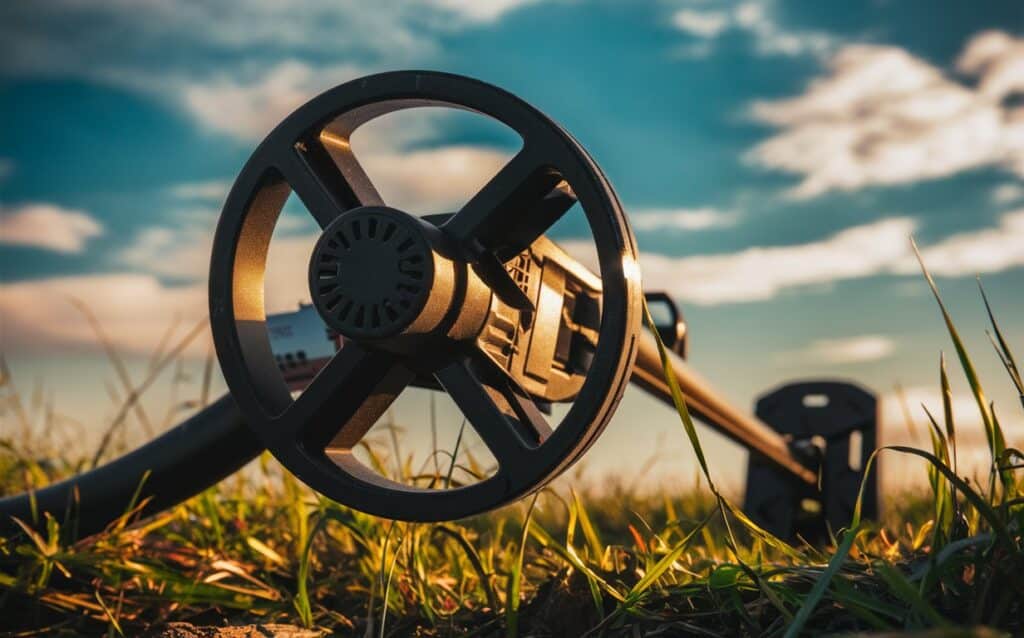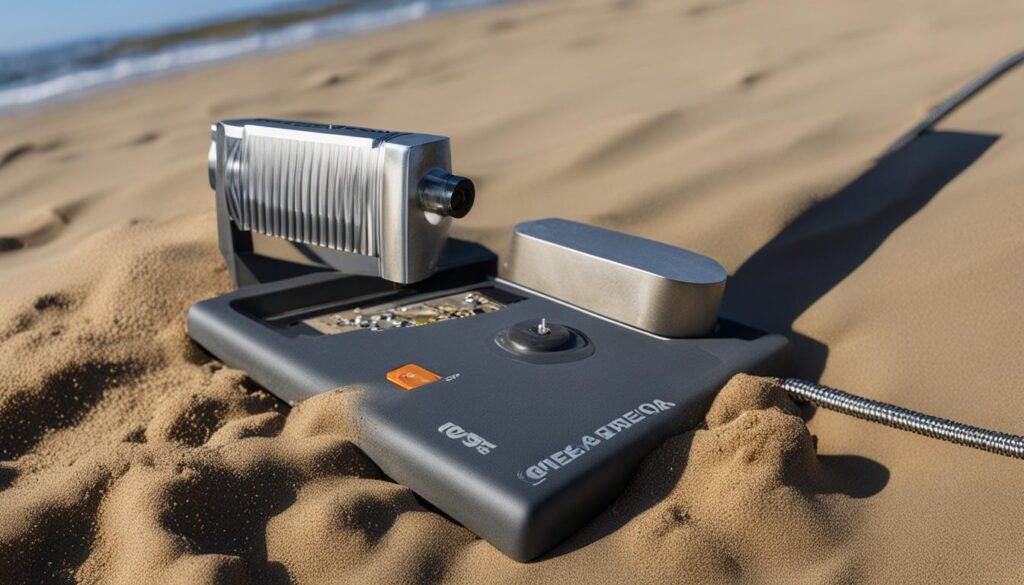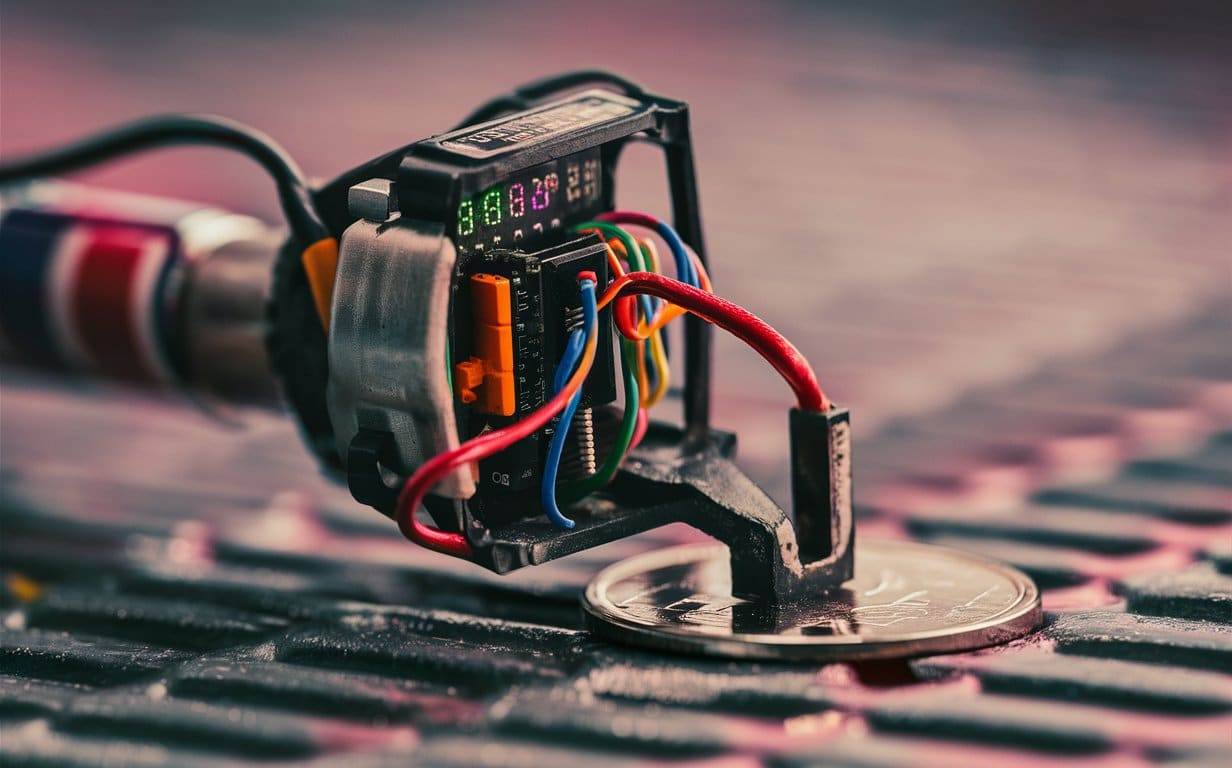Discover the different types of metal detector sensors and how they are used. Learn about trusted German technology and find authorized agents in the region.
Types of Metal Detector Sensors- A Guide to Their Functions and Applications
Introduction
Metal detectors are important for many uses, like finding treasure or keeping places safe. Knowing the different types of metal detector sensors helps you pick the right one. This guide explains the main types of metal detector sensors and their uses.
Contact Sensors
Contact sensors need to touch the object to detect it. These are used where you need exact results.
- Types of Metal Detectors: Contact sensors are in different kinds of metal detectors for special jobs.
- Search Technology: They use special search technology to find metallic objects well.
- Detection Applications: These sensors work great in factories and other places where finding metal exactly is key.
Non-Contact Sensors
Non-contact sensors find metals without touching them. They use electromagnetic principles.
- Inductive Sensors: Use electromagnetic fields to spot metals without touching them.
- Capacitive Sensors: Detect changes in capacitance when a metal is close by.
- Eddy Current Sensors: Find metals using currents and magnetic fields.
- Precision and Performance: Non-contact sensors are very precise and work well in many industries.
Advanced Sensor Technologies
Advanced sensor technologies use new ideas like artificial intelligence (AI) and machine learning (ML) to make detection better.
- Artificial Intelligence in Detection Systems: AI makes metal detectors smarter by looking at patterns and making quick choices.
- Machine Learning for Object Identification and Discrimination: ML helps metal detectors tell different metals apart, cutting down on mistakes and improving how they work overall.
Knowing about these types of metal detector sensors helps you choose the best one for your needs. Whether it’s for security, industry, or treasure hunting, each sensor type has its own benefits for specific jobs.
Choosing the Right Metal Detector Sensor for Your Needs
Factors to Consider When Selecting a Metal Detector Sensor
When picking a metal detector sensor, you gotta think about a few things. First off, why do you need it? Are you looking for old coins or making sure food is safe? Different metal detectors work better for different jobs.
Next, what kind of metal are you trying to find? Some detectors are good for all kinds of metals, while others, like pulse induction metal detectors, are great for finding gold.
Then there’s sensitivity and specificity. Sensitivity is how well the detector finds small bits of metal. Specificity means telling different metals apart. High accuracy metal detectors let you adjust sensitivity so you can find just what you’re looking for.
Finally, think about the environment. Are you using it in wet places or where it’s really hot? Some models work better in tough conditions than others.
Types of Applications
Metal detectors are used in lots of ways:
- Security and Law Enforcement: These detectors help keep places like airports and schools safe by finding hidden weapons and other dangerous items.
- Gold Prospecting and Treasure Hunting: If you’re hunting for treasure or gold, you’ll need special tools like certified gold detectors or long-range gold detectors. These can find precious metals buried deep underground.
- Archaeological and Historical Surveys: Archaeologists use metal detectors to find old artifacts without damaging them. These sensors need to be sensitive enough to detect small items.
- Food Safety and Quality Control: In the food industry, metal detection ensures products don’t have any harmful metallic contaminants. This keeps food safe for everyone.
Trusted German Technology
German-made metal detector sensors are known for being top-notch.
- Overview of German-Manufactured Sensors: German technology is famous for its precision and reliability in detecting metals across different uses.
- Features and Advantages: These sensors often come with advanced features like better sensitivity adjustment and strong build quality. They are perfect whether you’re a pro or just doing it as a hobby.
- Authorized Agents in Kuwait Saudi Arabia and the Middle East: If you’re in places like Kuwait or Saudi Arabia, get these sensors from authorized agents who offer genuine products and good support services.
Common Metal Detector Sensor Applications in the Middle East
Security and Law Enforcement
Metal detectors are super important for keeping places like airports, government buildings, and border crossings safe. They help stop bad stuff like terrorism and illegal activities by finding hidden weapons and other dangerous things. High accuracy metal detectors make sure even the smallest metal objects get caught during security screening. Electromagnetic metal detectors are popular because they are reliable and precise in detection systems. By using advanced technology, these metal detectors help keep everyone safe.
Archaeological and Historical Surveys
Metal detector sensors are great for finding buried artifacts in archaeological surveys and historical site explorations. They help us learn about old civilizations without digging everything up. 3D imaging metal detectors let archaeologists see underground structures without disturbing the site. Ground-penetrating radar (GPR) is also really useful because it helps map out what’s under the ground accurately. These technologies are key to preserving our cultural heritage.
Gold Prospecting and Treasure Hunting
Looking for gold and other precious metals is a fun activity for both hobbyists and professional explorers. Long-range gold detectors with pulse induction technology or VLF (Very Low Frequency) metal detectors are often used to find hidden treasures like ancient coins. These devices can detect metals such as gold, silver, and copper even in tough mineralized soils where regular detectors might not work well. Advanced conductivity features help find small gold nuggets more accurately, making treasure hunting an exciting adventure!

Tips for Using Metal Detector Sensors Effectively
Understanding the Basics
Metal detectors use electromagnetic principles to find metals. They send out an electromagnetic field and then check the signal that comes back. The precision and performance of a metal detector depend on how well it can tell different metals apart, which is called target discrimination. Metals like gold and silver have high conductivity, so they give off stronger signals than less conductive metals.
Calibration and Maintenance
Proper calibration and maintenance are key for high sensitivity metal detection. Even if some detectors say they are calibration-free or maintenance-free, regular checks can improve their performance:
- Calibration: Adjust the sensitivity settings regularly to fit the conditions of your search area.
- Maintenance: Clean the coil after each use and look for any damage. Store your detector in a dry place to keep moisture away.
Environmental Considerations
The effectiveness of metal detectors can change with different environmental conditions. Mineralized soils, for instance, can mess with signal clarity. Here are some tips:
- Mineralized Soils: Use detectors with ground balance features to handle mineral interference.
- Rugged Design: Pick models made for tough environments if you plan to search in harsh conditions.
Interpreting Results
Understanding signal analysis and target signals is important when reading results from your metal detector. Different metals make different signals:
- Small Gold Nuggets: These often give faint but steady signals.
- Ferrous vs. Non-Ferrous Metals: Ferrous metals (like iron) usually make low tones, while non-ferrous metals (like gold) make higher tones.
By knowing these differences, you can better identify what type of metal you’ve found.

Future Trends in Metal Detector Sensor Technology
Enhanced Sensitivity and Precision
Technological advancements have made metal detector sensors much better at finding metals. Modern detectors now have parts that help them detect smaller metal objects buried deeper underground. This is super useful for things like archaeology, security, and treasure hunting.
These improvements come from new sensor technology and better materials. Enhanced sensitivity means detectors can pick up weak signals from metals far below the surface. Increased precision helps identify different types of metals accurately, reducing false positives and increasing the chances of finding valuable items.
Integration of Artificial Intelligence
Artificial Intelligence (AI) is changing how metal detectors work. By adding AI to these devices, manufacturers can improve how well they identify and tell apart different metals. AI algorithms look at the signals from the sensor and decide what type of metal is being detected in real-time.
This helps users by giving more accurate info about what they find, saving time on unnecessary digs. For example, AI can tell the difference between a valuable coin and a common bottle cap, helping treasure hunters focus on important finds.
Advanced Signal Processing
Advancements in signal processing are also making metal detectors better. Improved algorithms help detect metals more accurately by filtering out noise and focusing on important signals.
These algorithms work faster and with greater accuracy, even in tough environments like mineral-rich soils or areas with lots of electromagnetic interference. This makes detection more reliable, boosting user confidence.
Wireless Connectivity and Data Sharing
Wireless connectivity is now a key feature in modern metal detectors. It allows for remote monitoring and data sharing, improving the overall user experience.
With wireless connectivity, users can connect their detectors to smartphones or other devices to see detection results in real-time. This helps make better decisions on-site without extra equipment. Remote monitoring also allows multiple users to share data instantly for thorough analysis.
In summary:
- Enhanced Sensitivity: Finds smaller objects at greater depths.
- Precision: Accurate identification reduces false positives.
- AI Integration: Better object identification and discrimination.
- Advanced Signal Processing: Filters noise for reliable detection.
- Wireless Connectivity: Enables remote monitoring and real-time data sharing.
By embracing these trends, metal detection technology continues to improve, offering more efficient tools for various applications from security to treasure hunting.
Choosing the right metal detector sensor is crucial for achieving high accuracy in various applications. Different types of sensors are designed to meet specific needs, whether it’s for security, archaeology, food safety, or geophysics. German technology is highly trusted in the Middle East due to its precision and performance.
There are several types of metal detector sensors, including electromagnetic metal detectors, pulse induction metal detectors, and VLF (Very Low Frequency) metal detectors. Each type has its unique features and uses. For instance, electromagnetic principles are often used in ground scanning to locate hidden metals.

